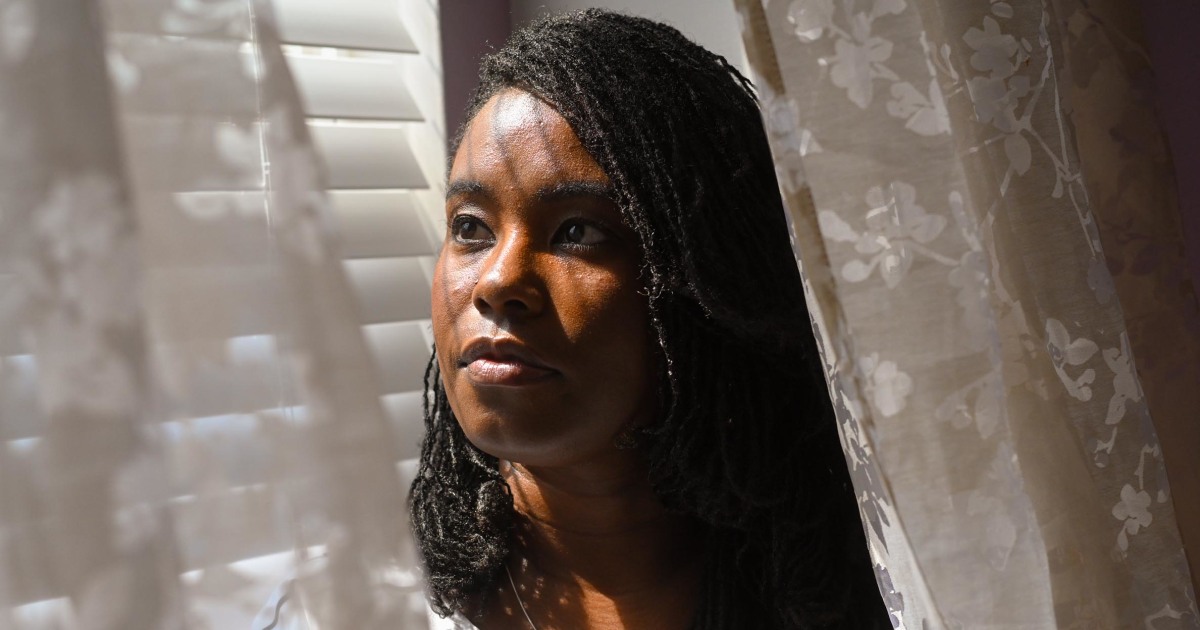By April Dembosky - KQED, KHN
For several weeks a year, nurse-midwife Karen Sheffield-Abdullah's job is detective.
She with a team of medical investigators from the North Carolina Department of Public Health examines hospital records and coroner's reports of mothers who died after giving birth.
These maternal mortality review boards look for clues about the causes of these deaths—prescriptions that were never picked up, missed postnatal appointments, red flags missed by doctors—to find out how many could have been prevented and how.
The committees work in 36 states, and in the latest and largest collection of data of its kind, published in September by the Centers for Disease Control and Prevention (CDC), a staggering
84% of pregnancy-related deaths are considered preventable.
What is even more alarming to nurse-detectives like Sheffield-Abdullah is that 53% of the deaths occurred long after the women were discharged from hospital, between seven days and a year after giving birth.
"We're very baby-focused," she says.
“Once the baby is born, it's almost as if the mother is discarded.
And what we really have to think about is that fourth trimester, that time after the baby is born."
Mental health, at the center of the causes
Mental health conditions were the leading underlying cause of maternal deaths between 2017 and 2019. Non-Hispanic white and Hispanic women were the most likely to die from
suicide or drug overdose
, while heart problems were the leading cause of death for non-Hispanic black women.
Amid Surge of RSV Infections Comes Good News for Expecting Mothers
Nov. 1, 202200:32
Both circumstances occur disproportionately later in the postpartum period, according to the CDC report.
The data reveals multiple shortcomings in the care system for new mothers, from obstetricians who aren't trained (or paid well) to look for signs of mental health problems or addiction, to policies that strip women of poor health coverage. after giving birth.
The main problem is that the typical six-week postnatal checkup is too late, according to Sheffield-Abdullah.
In the North Carolina data, new mothers who died later missed this appointment because they had to go back to work or had other young children, she added.
"We have to really stay in touch while they're in hospital," Sheffield-Abdullah said, and then make sure patients get proper follow-up care "a week or two after delivery."
Another of the CDC's recommendations is more screening for postpartum depression and anxiety, throughout the year after delivery, as well as better coordination of care between medical and social services, according to David Goodman, who leads the CDC team. prevention of maternal mortality from the CDC's Division of Reproductive Health, which published the report.
A common crisis is that a parent's addiction becomes so severe that the
baby is taken away by child protective services, precipitating an accidental or intentional overdose
by the mother.
Having access to treatment and making sure children are seen regularly could be the key to preventing these deaths, Goodman said.
Expanded medical coverage
The most important political change has been the expansion of free health coverage through Medicaid, he said.
Until recently, pregnancy-related Medicaid coverage used to expire two months after delivery, forcing women to stop taking medications or see a therapist or doctor because they couldn't afford the cost without health insurance.
A high level of stress reduces the chances of achieving a pregnancy, according to a study
Sept.
26, 202201:42
Now, 36 states have extended or plan to extend Medicaid coverage up to a full year after childbirth, in part in response to early work by maternal mortality review committees.
"If this isn't a call to action, I don't know what is," said Adrienne Griffen, executive director of the Maternal Mental Health Leadership Alliance, a nonprofit focused on national policy.
“We have long known that mental health problems are the most common complication of pregnancy and childbirth.
We just haven't had the will to do anything about it."
The latest CDC study from September looked at 1,018 deaths in 36 states, nearly double the 14 states that participated in the previous report.
The CDC is funding even more maternal mortality reviews, Goodman said, in hopes of capturing more comprehensive data from more states in the future.
Increased awareness and attention to maternal mortality has given activists and clinicians hope, especially in efforts to redress racial disparities:
Black women are three times more likely to die from pregnancy-related complications
than white women .
Alarm for the revocation of Roe vs.
Wade
But many of these same supporters of better maternity care say they are appalled by the US Supreme Court's recent decision to uproot the federal right to abortion;
restrictions around reproductive health care, they say, will erode gains.
The heroic action of this pregnant firefighter in the middle of a car accident
Oct. 17, 202201:16
Since states like Texas began banning abortions early in pregnancy and making fewer exceptions for cases where a pregnant woman's health is in jeopardy, some women have found it more difficult to get urgent care for a miscarriage.
States are also banning abortions — including in cases of rape or incest — for young girls, who face a much higher risk of complications or death from carrying a pregnancy to term.
“Increasingly the message is that 'you don't own your body,'” said Jameta Nicole Barlow, associate professor of health writing, policy and management at George Washington University.
According to Barlow, this will only exacerbate the mental health issues women experience around pregnancy, especially black women, who also face the
long intergenerational history of slavery and forced pregnancy
.
He suspects that the maternal mortality figures will get worse before they get better, due to the interplay between politics and psychology.
"Until we address what's going on politically," he said, "we're not going to be able to help what's going on psychologically."
KHN (Kaiser Health News) is the newsroom of KFF (Kaiser Family Foundation), which produces in-depth health journalism. It is one of the three main programs of KFF, a non-profit organization that analyzes the health and public health problems of the nation








